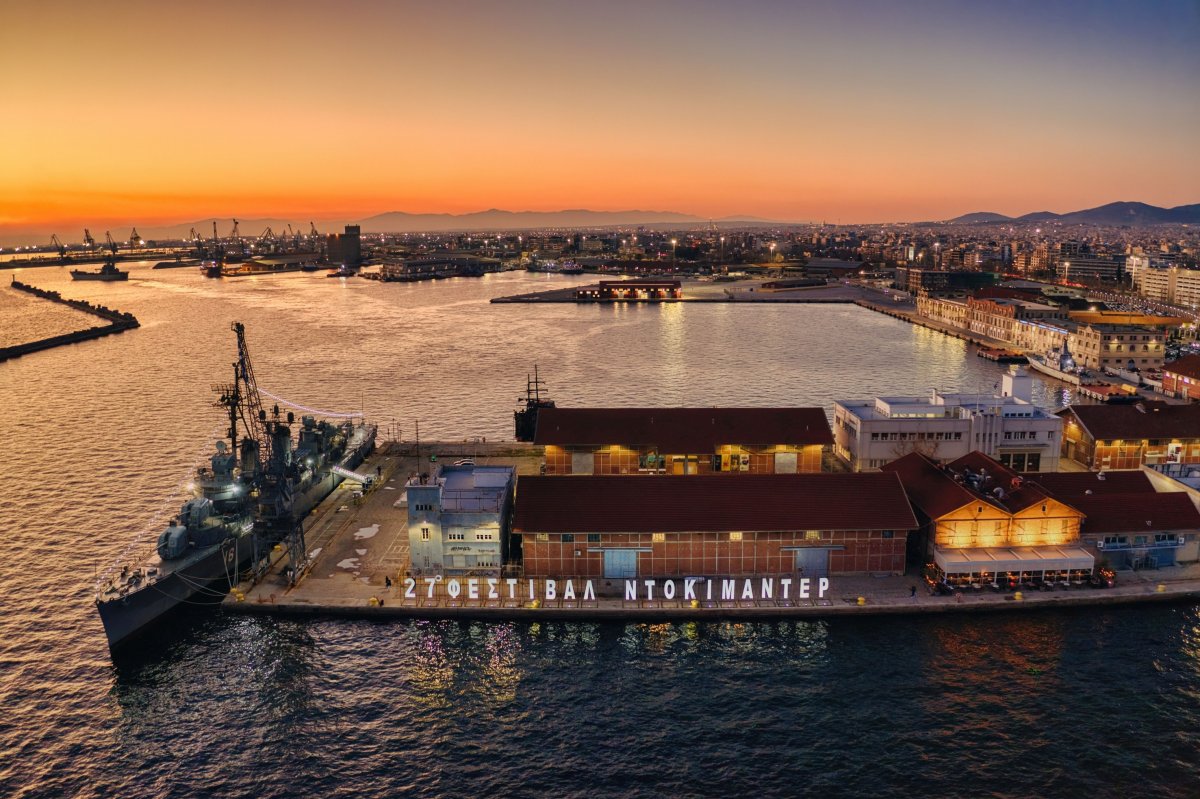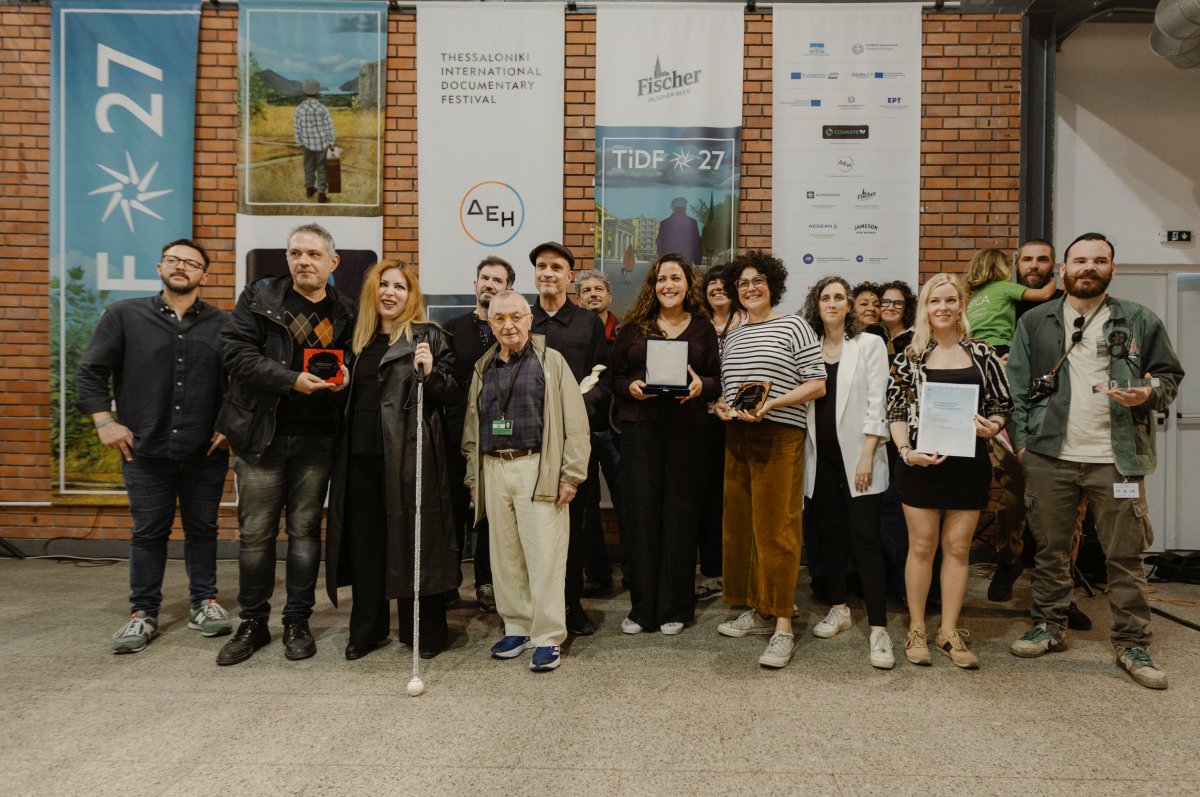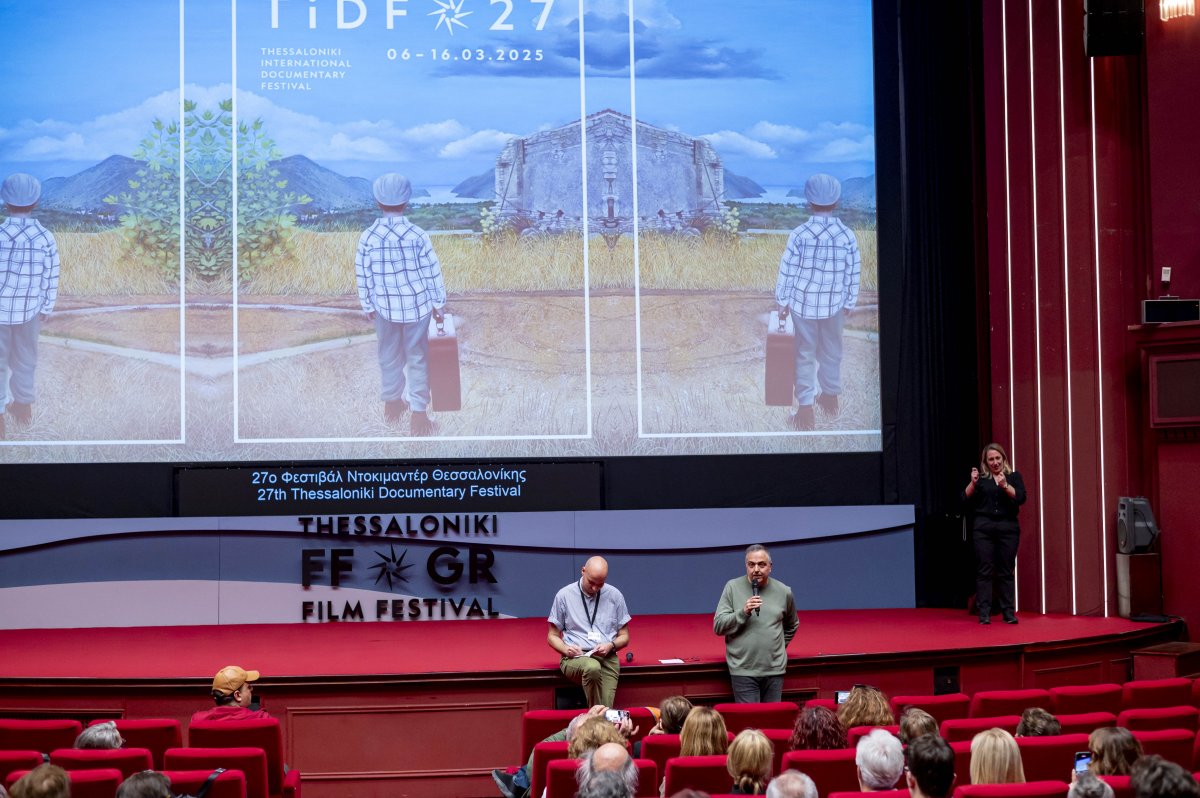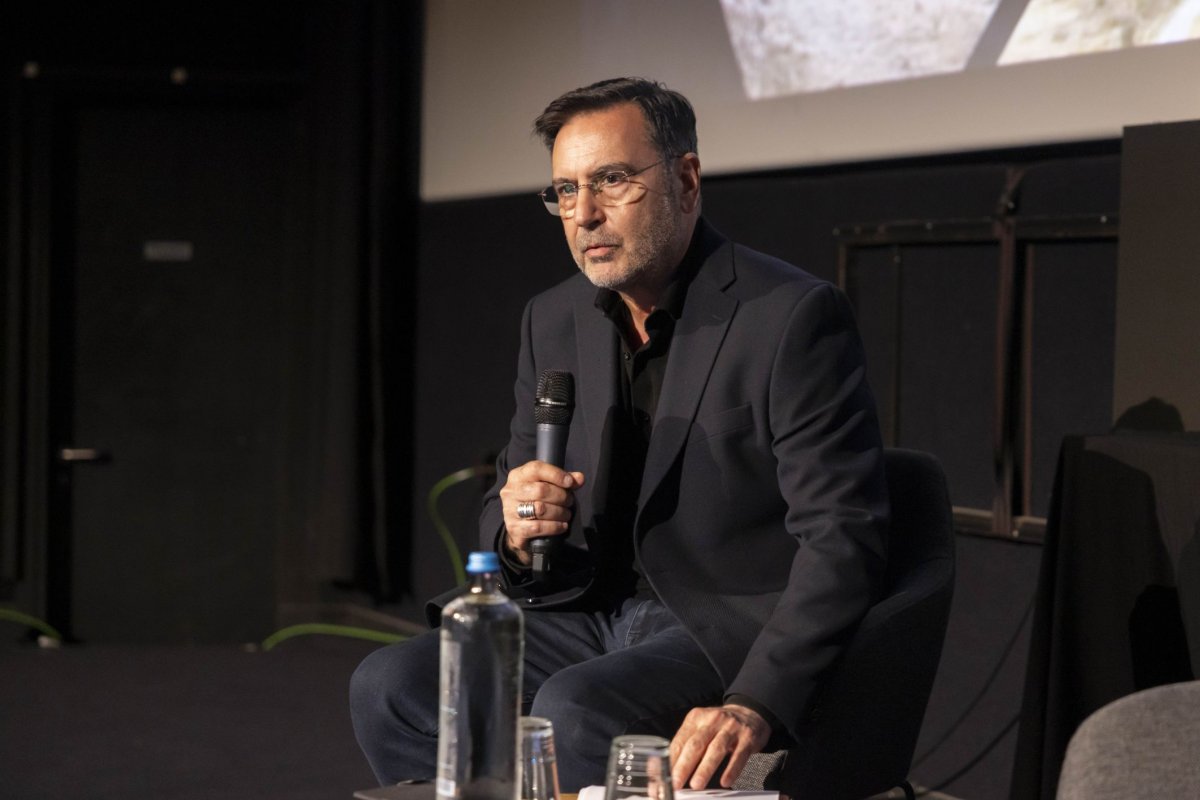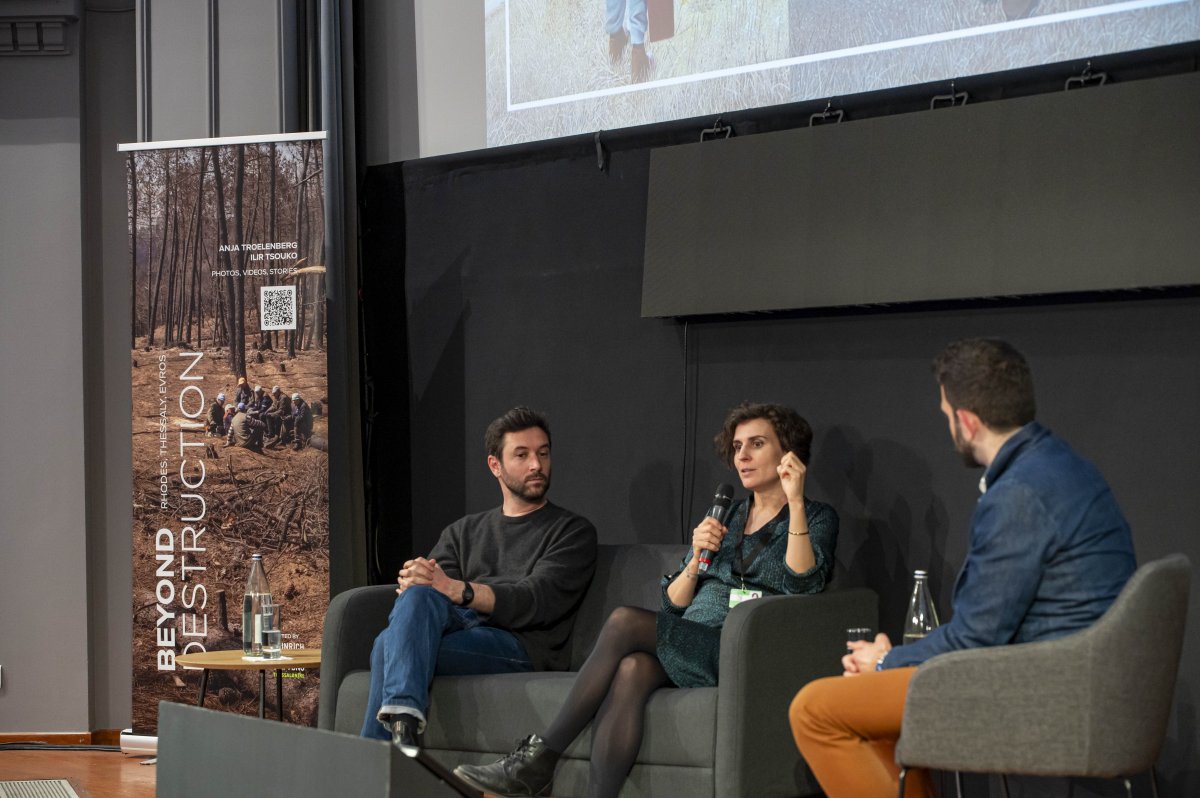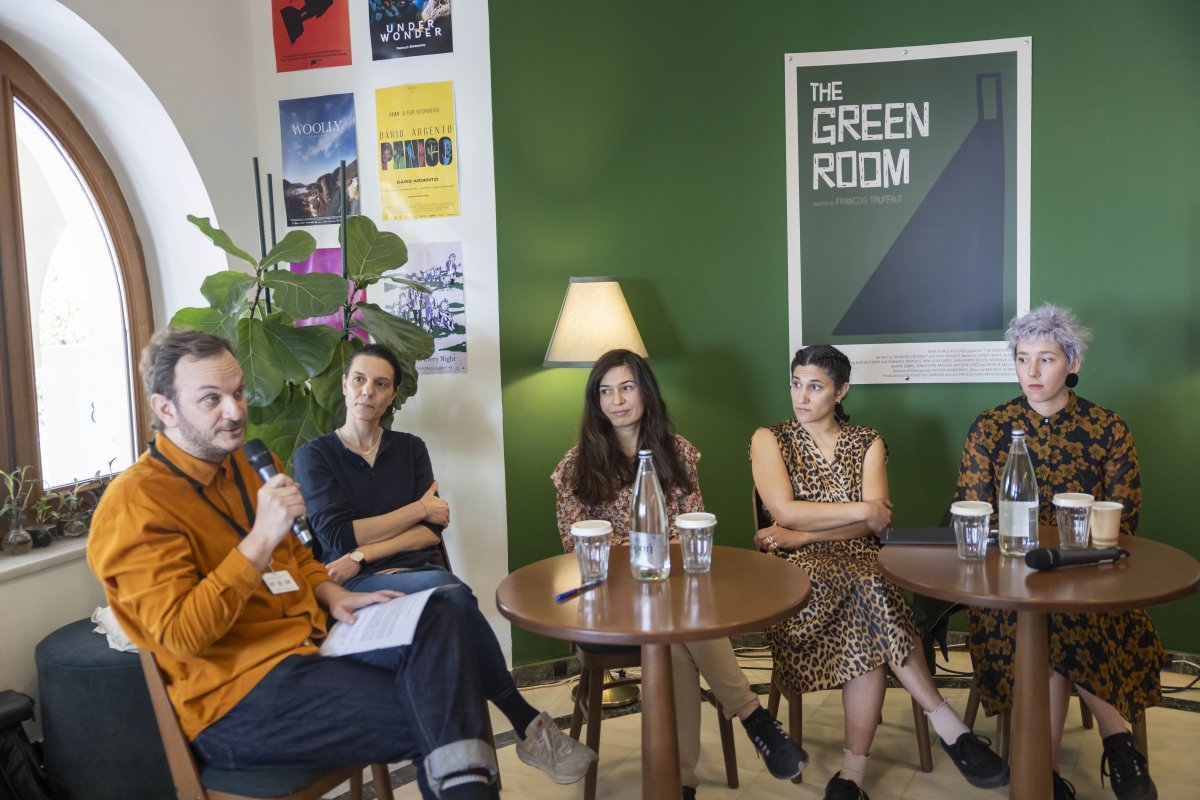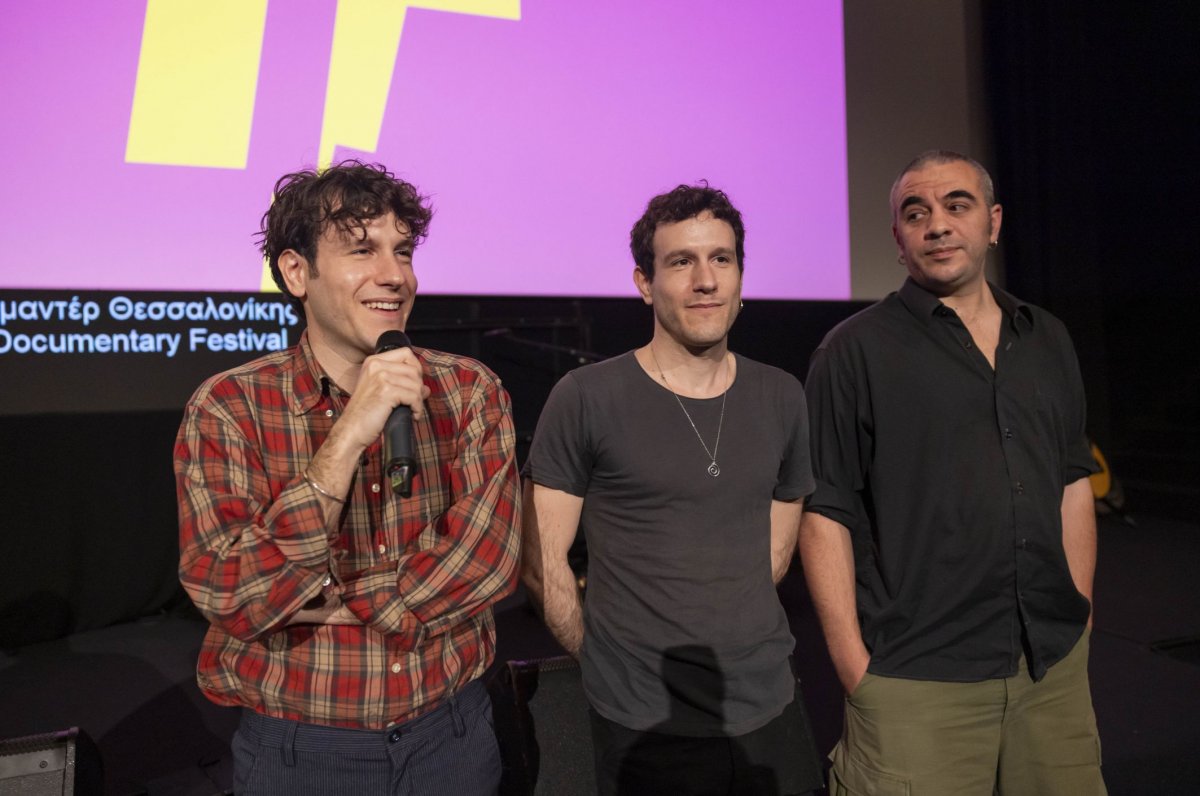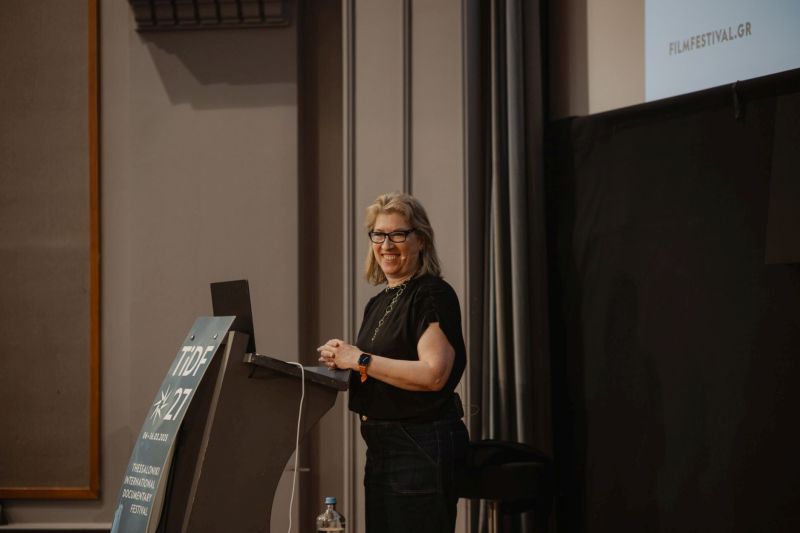The open discussion titled Gender-based violence: I See Evil, I Hear Evil, I Speak Evil took place on Thursday March 9th, at the Green Room in Olympion. The discussion explored the forms of gender-based violence, this everyday, global phenomenon that affects (in an overwhelming majority) women, young girls and LGBTQ+ people. The speakers also touched upon the ways to make visible its invisible aspects. The participants in the discussion included Efthymia Zymvragaki, director of the documentary Light Falls Vertical, Andreas Vagias, journalist and creator of the podcast Mute – The Silent Violence of a Parting Wall, Eva Gassi, sexual violence incident management officer of the Diotima Center in Thessaloniki, Ioanna Kosmopoulou, deputy mayor of Social Policy and president of the Equity Committee of the Municipality of Thessaloniki, as well as the scientific staff of the Shelter for Women Victims of Violence of the Municipality of Thessaloniki. It was moderated by Dimitra Nikolopoulou, journalist and Head of Communication at Thessaloniki International Film Festival.
Dimitra Nikolopoulou kicked off the discussion by referring to the title of the event. “Perhaps it reminds you of the wise monkeys in Japanese philosophy, which, in simplified Western language, have been passed down as "see no evil, hear no evil, speak no evil" - there is also a corresponding film by Nuri Bilge Ceylan, the Three Monkeys. Just like the three monkeys warn against violence and evil, we shall talk about it. In the works of the people who have entrusted us, both in Andreas’ podcast and in Euthymia's documentary, many things are heard, as in other documentaries of the program. And what is heard is the abuse of women and children, death threats, victim-blaming, and femicide. In today's conversation, we want to add a few more words: caring, overcoming fear, safety, and a new beginning. We will start the conversation with art, as at the 25th Thessaloniki Documentary Festival, art gives us a reason to think about how we can become more informed and active citizens," she initially stated before giving the floor to Efthymia Zymvragaki, director of the documentary Light Falls Vertical, which shows violence from the perspective of the abuser.
Ms. Zymvragaki initially mentioned that the protagonist of the documentary was the one who approached her. "We presented a documentary in Tenerife, where Ernesto came by himself and wanted to tell me his story. It was a complex and difficult undertaking, there were many obstacles. I knew it was a story worth telling. I had never before met men who exposed themselves like that. It seemed courageous on his part, but I made it clear to him that I didn't want a fiction film, but a documentary where his face would be shown. He accepted. It was a project with difficult ethical decisions. Why give a violent man a platform to express himself? We were faced with a taboo, with a cancel culture that wants to erase the image of the violent man. This act, however, does not protect the woman, but the violent man. No one brings them into the spotlight. In making this documentary, I had a few clear things in mind. I knew I wanted to make a film that talked about violence but in a non-violent way. I wanted a tender film that would not create violence or wounds, only redemption, and catharsis," she said.
The podcast of Andreas Vagias, Mute – The Silent Violence of the Parting Wallsl, provided the basis for continuing the discussion. The podcast won the award for the development and implementation of a podcast based on journalistic research and documentation. The award was presented in collaboration with the festival and the non-profit journalism organization iMEdD, which was founded in 2018 with the exclusive donation from the Stavros Niarchos Foundation. Ms. Nikolopoulou commented on the topic: "We keep talking about gender-based violence, but what exactly is gender-based violence? I borrow the definition given by psychotherapist Eleni Chouvarda in Andreas Vagias' podcast. It is violence based on gender, with misogynistic motives, suffered by women, femininities, and LGBTQI individuals, produced and rooted in the inequality of gender relations." Addressing Mr. Vagias, she said, "Your podcast documents systematic gender-based violence through testimonies from victims who have suffered it and experts who help us understand more. You are a man who, unlike Efthymia, documented stories of women victims. How did you handle it?”
"Firstly, I’d like to say I wish there were more men here," Mr. Vagias replied. "We're talking about gender-based violence and the ones who cause it are missing. The concept of gender is inescapable, even for me," he emphasized. He then spoke about his past in journalism: "I have experience having to deal with the news of abuse, even femicide. Making a podcast about these subjects was a personal need of mine, on a journalistic level. It's not easy to become aware of gender-based violence through the lens of the media. Unfortunately, the media usually sensationalizes it because it serves their interests. The essence of gender-based violence exists, it's not news. However, we don't focus on what causes it. The podcast features four people who, fortunately, have survived gender-based violence and can speak about it. Although, they almost didn't make it. It's important that they have managed to remember all these experiences, and I thank them for it. We often hear that ‘no one knows’ about these incidents. I don't believe that such incidents happen without prior escalation. No one wakes up one day and decides to commit murder. Usually, these events don't happen in public spaces, but in private spaces; the shelter turns into a place of torture. Where we go to rest, the agony begins. Indeed, we all know on the other side of a parting wall; violence awaits. In our country, there is also the phrase ‘what happens at home, stays at home’, a behavior that perpetuates abuse and makes victims ashamed to speak out publicly about it,” he said.
Ms. Nikolopoulou, speaking about the violence behind closed doors that occurs, mentioned that the podcast also includes testimonies about assault out in the public eye. "Sometimes we don't intervene in a couple's arguments because we believe they have their own communication code. Other times we obey the phrase 'what happens at home, stays at home'. These women were seeking help beforehand, but no one was listening to them. Gender-based violence is often insidious and silent. It starts with a psychological and social power dynamic before becoming physical. Often, this violence operates in a gray area and builds up over time. What are the warning signs before things become extreme?" Responding to the question, Ms. Zymvragaki stated: "I am trying to expose the simple, common, ‘ordinary’ things that create a system. No one knows how to label these commonplace things as abuse and prefers to blame themselves. We must consider ourselves part of this system." At this point, Mr. Vagias took the floor and mentioned that a guilty person in court has the right to defend himself and prove that he is not guilty. However, it is an oxymoron that in gender-based violence, the victim has to prove that he or she is a victim: "The basis of gender violence is patriarchy," he concluded.
Then, the floor was given to Ioanna Kosmopoulou, deputy mayor of Social Policy and president of the Municipal Committee on Equality of the Municipality of Thessaloniki. Ms. Kosmopoulou thanked the Festival for the invitation and said: "As mentioned earlier, there are gray areas. Abuse occurs outside the home and people do not intervene. Often, the victim does not even admit to themselves that they are experiencing gender-based violence. Initially, the relationship starts with passion that becomes a habit, then dependency, and finally, oppression. The first step is to realize that we are experiencing gender-based violence. We must find the courage to admit it to ourselves and, unfortunately, the victim is always treated with suspicion by the authorities. This is where the Municipality comes in, with our structures, aiming to provide assistance to women who are victims of violence."
Then, she added: "Apart from the Shelter, we have other structures as well. Cinema has greatly helped highlight the phenomenon of toxic masculinity and gender-based violence, but life really surpasses art: we cannot imagine what happens when the door closes. We can only offer help, but first, the incident must reach us. The General Secretariat for Demographic and Family Policy and Gender Equality is responsible nationwide, which has supportive structures all over the country for this purpose: the nationwide 24-hour SOS hotline 15900, 43 counseling centers, 19 women's shelters throughout the country, 3 shelters of the National Center for Social Solidarity and 2 social support centers. In addition to women victims of gender-based violence, women who suffer many forms of discrimination, immigrants, refugees, single parents, people with disabilities, unemployed, and Roma with their children are also accommodated. The Shelter has been operating since August 2013 with a capacity of 20 beds. It operates 24/7 with a 3-month stay duration, of course in a confidential location. Referrals to the Shelter are made by the counseling centers of the General Secretariat, the community centers and social services of the Municipality, as well as by the services of the National Center for Social Solidarity. In extreme cases, referrals can also be made by the 15900 hotline. There is a conversation with the scientific staff and then some medical examinations are carried out to safeguard public health. If all the conditions are met, the woman enters the shelter. There, she will be the recipient of the care of the appropriate scientific staff and the shelter's provisions: housing, food, 24-hour security, social support, psychological support, employment counseling, and connection with institutions and services," she explained.
In response to a question about the amount of time required from the call to gain entry into the Shelter, Sofia Bozini, a representative from the scientific staff of the Shelter answered: "First, escape plan sessions are conducted. The woman must be determined that she wants to leave the house and recognizes that there is violence. We cannot answer generally, the time frame varies. Many times, women make a decision in the heat of the moment and the perpetrator persuades them to come back a second time. Although an oxymoron, the environment of violence at home can seem familiar and safe."
Eva Gassi who is the sexual violence incident management officer of the Diotima Center in Thessaloniki then took the floor and stated that their service provides psychosocial support in cases of gender-based violence and free services for all women: "My experience over the last 6 years is as follows; every day I hear a different story. I have something different to learn from each woman. Usually, women come voluntarily, while others come through another agency. In no way are we trying to replace any public service - we function as a support system. We take on, for example, the part of legal representation. Although there is a legal adviser from the municipal services, he does not represent them in court. With the resources we have at our disposal, we provide support, including legal assistance. We provide multifaceted services. We listen to the women, and provide an environment of trust and safety. Many women have never spoken out before. We never judge women for what they have experienced. It is a difficult and painful process, especially when there are children involved. The time it takes for a woman to reach our facility varies from 3 days to 2 months. Additionally, since November 2022, with the program "All Safe", we provide support to Greek and immigrant women in the Region of Central Macedonia and Athens," explained Ms. Bozini. When asked if the shelters stay in touch with the women, Ms. Bozini replied that follow-up is done at the first, third, and sixth months, and then they are referred and networked elsewhere, so as not to develop a dependent relationship with the shelter. Ms. Kosmopoulou added that the women are not left to their fate, but they are turned towards other structures, and are guided and supported, if necessary, with meals and the Social Grocery.
Concluding the discussion, Dimitra Nikolopoulou said: "At the Festival, we can only inform, raise awareness, and present works that appeal to the conscious citizen - and not only that, but also to the ordinary citizen who will become conscious through art. We can give very little. In November, we invited the artist Dimitris Trimintzios (Taxis) to create the poster for the 63rd Thessaloniki Film Festival. He created a female figure, a real-life superheroine. He selflessly provided us with the original work, and also signed 15 numbered silk-screen prints. These days, more specifically from March 9th to 16th, an online charity auction will take place in collaboration with the Vergos auction house - on their website vergosauctions.com, and the proceeds will go to support the Women's Shelter for Victims of Violence & their Children in the Municipality of Thessaloniki. We thank both the artist and Vergos auction house very much. It is minimal, it is symbolic. But if we all start from a small nothing, things will change for the better."
You can visit the website of Vergos Auction House, bid for one of the 15 numbered artworks of Dimitris Trimintzios (Taxis), and support the Women's Shelter for Victims of Violence and their Children of the Municipality of Thessaloniki at the following link:
https://www.vergosauctions.com/auctions/detail/category/2/auction/2838/item/19681





